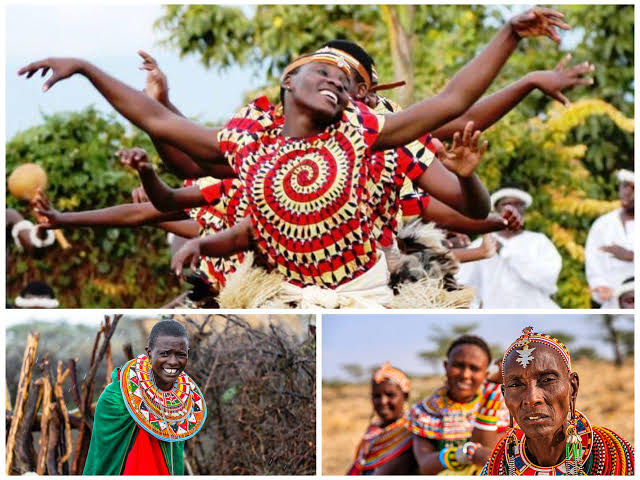There are over 3,000 tribes in Africa, each with diverse cultures and histories.
And each of them deserves to be recognized and appreciated.
Here are 3 of the smallest tribes in Africa.
1) Karamojong
Three hundred and seventy thousand members of the Karamojong Tribe reside in northern Uganda.
Studies indicate that the Karamojong people moved from what is now Ethiopia to Uganda at approximately 1600 AD. They converse in a language known as Karamojong, which is their own.
Traditionalists that take great pleasure in their culture and traditions are the Karamojong. They jealously guard their practices, and any government plans to change their way of life, and it takes a lot of sensitization to accept them.
They are a pastoral tribe, and herding livestock remains their primary occupation. They also engage in crop cultivation in areas where it is impossible to herd livestock. They are getting fewer in number.
2. Himba
The Himba are an indigenous tribe that is one of Africa’s smallest and has a population of about 50,000. The Kunene region in Northern Namibia and the Angolan side of the Kunene River include them.
They are a native group residing in Namibia for more than 500 years. Most of them are livestock farmers. Despite being a small tribe, they continue to observe their cultural customs and follow a bilateral descent system.
Due to a lack of milk and meat, their main diet consists of sour milk, maize porridge, and occasionally just plain stiff porridge.
In addition, cornmeal, chicken eggs, wild herbs, and honey are added to their diet. Sometimes, cattle are sold for cash. The Bantu language Otjihimba is spoken by the Himba.
3. El Molo
Only 300 members of the El Molo, the smallest tribe in Kenya, live on the beaches of Lake Turkana. They left Ethiopia over 3000 years ago, around 1000 BC. When they arrived at the lake, they gave up farming and turned to fish instead. They converse in what is called the El Molo language, which is their own.
Even though permanent concrete homes are gradually replacing them, the El Molo still reside in huts on the edge of Lake Turkana. Many El Molo practices a traditional religion centered on Waaq/Wakh worship. Waaq refers to the one God of the early pre-Abrahamic, monotheistic faith of the related Oromo civilization.
Christianization has also occurred among some El Molo. The El Molo bury their deceased beneath a small stone cairn on the shore of the lake, and the entire town then moves away from the burial spot to avoid offending the dead.



